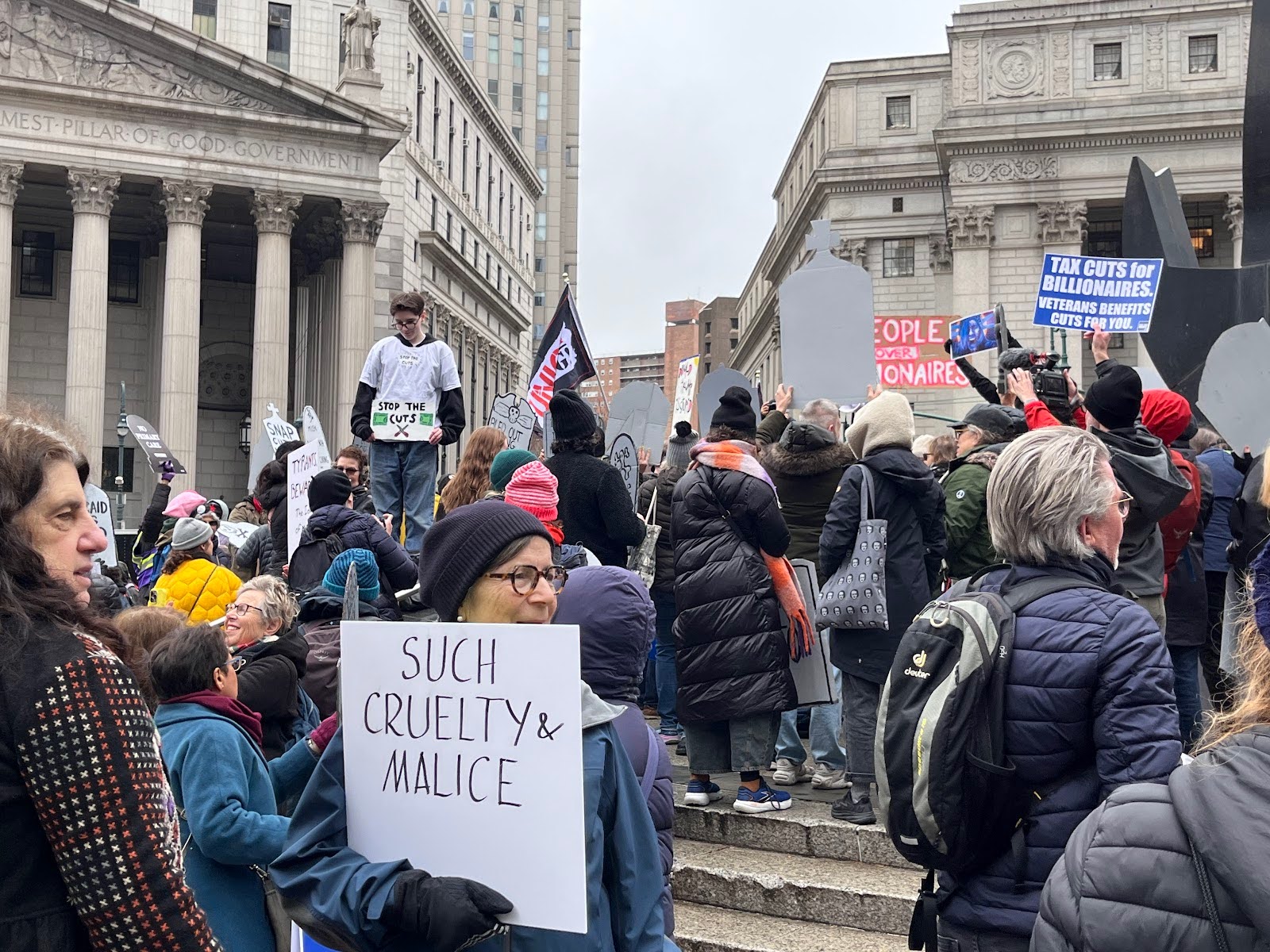Amid sweeping proposals to slash federal spending, students and faculty across the City University of New York (CUNY) are raising concerns about the future of financial aid, healthcare, and academic funding. Recent executive orders from President Donald Trump that aim to eliminate the Department of Education (ED) and cut $2 trillion from federal programs have resulted in CUNY-wide protests.
The ED — the federal agency responsible for dispensing financial aid as determined by students’ FAFSA submissions and providing states with guidance on education reform — moved forward with a proposal to cut half of its workforce on Friday, March 21st, the day after President Trump signed an executive order aiming to close the department. Over 77 percent of CUNY’s undergraduate students applied for and received financial aid through Federal Pell Grants and the New York State Tuition Assistance Program (TAP) in the 2022–2023 academic year, according to a February 2024 CUNY press release.
While the March 20th executive order asserts that this is an effort to grant states the authority over education, it remains unclear exactly what student loan repayment and financial assistance will look like without the DOE.
“I wonder who is on the other side of FAFSA,” said David Gerwin, a professor and chair of Queens College’s Secondary Education Department. “When you file a FAFSA, someone has to process that FAFSA, so I worry about moving things like Pell grants and Work Study. I worry about students who are eligible not getting their FAFSA processed, and not getting the Pell grants that they need.”
Further uncertainty has surrounded decisions made by the newly created Department of Government Efficiency (DOGE), headed by Tesla CEO Elon Musk, which has deemed programs such as Medicaid, Medicare, Housing Choice Vouchers and SNAP benefits, among others, as wasteful, fraudulent and abused.
According to the 2018 survey by Healthy CUNY, nearly 42 percent of all CUNY students are covered by a public insurer such as Medicaid, Medicare or Veterans Affairs.
Directly affecting student life, DOGE announced on April 3rd via the social media platform X (formerly Twitter) that the department cancelled a $265k grant awarded to QC’s Graduate School of Library and Information Studies. While the post claims that this grant was to “research ‘why BIPOC teens’ read Japanese comic books,” an official statement by the graduate school published Aug. 13th, 2023 describes the project’s goal as learning “how and in what ways librarians can better serve BIPOC teens,” and, “to bridge the gap between these readers and librarians by developing targeted resources and workshops.”
In response to the proposed goal of $2 trillion in cuts, hundreds of CUNY Professional Staff Congress (PSC-CUNY) members protested alongside roughly 10,000 New Yorkers on March 15th at Foley Square in Manhattan, according to the PSC’s website.
“DOGE cuts kill people,” PSC members chanted during the demonstration.
While no definitive timeline for the elimination of these programs has been announced, congressmembers such as Mike Rounds, a Republican senator from South Dakota, have proposed bills that would provide such timelines, as well as specify where resources may be reallocated, if at all. Until the Senate officially votes on this legislation, however, exact details have yet to be determined.











